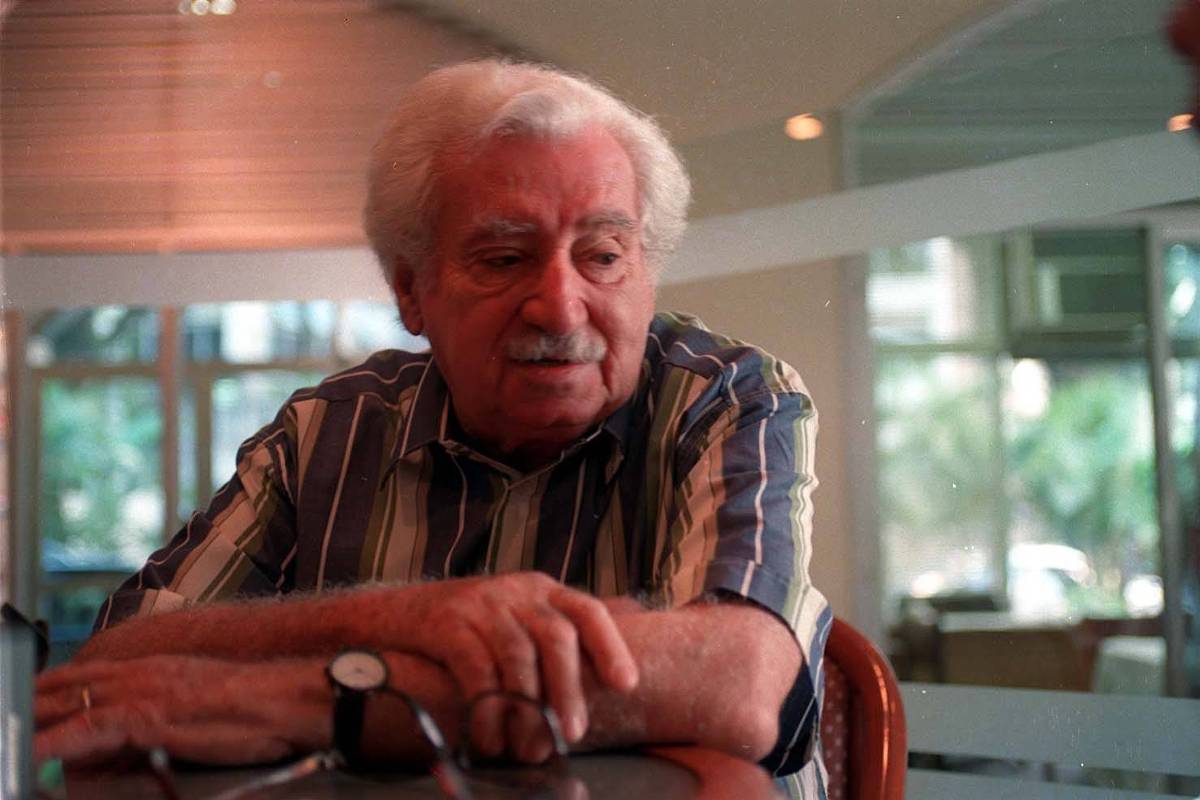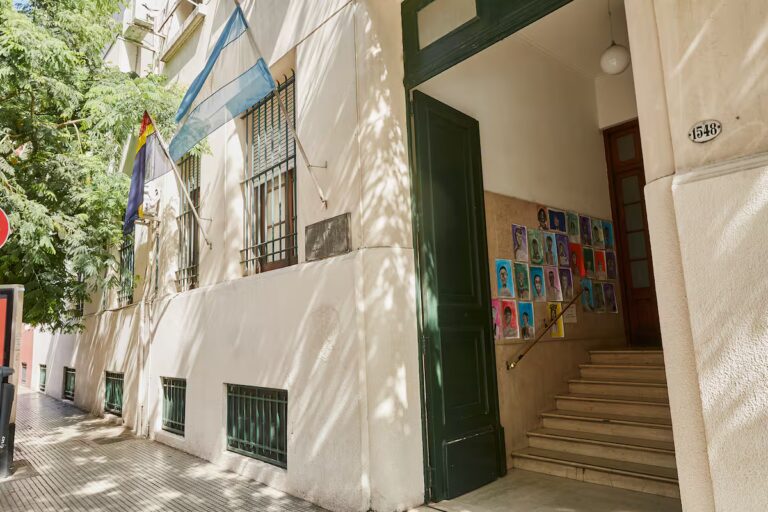
Jorge Amado, author of Gabriela, Cravo e Canela, Tieta do Agreste, and Capitanes da Areia, has established himself as one of the country’s greatest and most popular writers. Otto Lara Resende said of him: “I am absolutely certain that Brazil exists.”
In 1944, the Bahian author reflected on the power of words on a planet in conflict as World War II raged on. “How can we talk about the free beauty of fields and cities when wild beasts continue to destroy them all over the world?” he wrote in an article published in Folha da Magnhão.
In the early 1960s, the newspaper merged with Folha da Mañã and Folha da Tarde, creating Folha de São Paulo.
“There was a day when I spoke about love, and I found the kindest words, the most elaborate phrases for it. Today, only hate can keep love alive in this world,” Amado wrote.
Read the full story below. It is part of Section 105’s “Pillars of Great Reaction.” In this section, we recall the chronicles that made history. sheet. This initiative is part of the newspaper’s 105th anniversary celebrations scheduled for February 2026.
Neither rose nor carnation (1944/7/16)
When sentences lose meaning, words lose their normal meaning, and children are murdered in cold blood by the Nazis, what can you say about trees and flowers, your eyes and the sea, canoes and piers, butterflies that perch on trees? How can we talk about the free beauty of fields and cities when wild beasts continue to destroy them throughout the world?
Have you ever seen a wheat-colored blonde swaying in the wind? It is one of the most beautiful things in the world, but the Hitlerites and their evil dogs destroyed the wheat fields and the people died of hunger. So how can we talk about beauty, about flour and bread, about fountain water, about blue skies, about this simple, pure beauty of your face in the afternoon? I can’t talk about these everyday things, these everyday joys.
Because the wheat fields and the bread, the flour and the water, the sky and the sea and your face are all at risk. Against all that is beauty in everyday human life, a medieval monster of vile vision and ferocious murderous intent has risen: Nazi fascism. Some, if they wish, speak of trees on a wild afternoon, of roses of different colors, of simple flowers, and of the loveliest and saddest poems. Some people say wonderful words of love to their loved ones, others talk about twilight and starry skies. I have no words, no sentences, I see the trees, the birds, and the afternoon, I see your eyes, I see the twilight on the city limits.
But above all in these paintings, the bodies of children killed by the Nazis float, the cries of old men being tortured in concentration camps blend into the chirping of birds, and the dawn of shot hostages blends into dusk. And when the landscape resembles the countryside, I see wheat fields destroyed by Hitler’s beasts, wheat fields that once fed the free people. Over all beauty hangs the shadow of slavery. It’s like an unexpected cloud appearing in a clear blue sky. So how do you find the innocent words, the sweet and loving words, the soft and sad poems? I no longer understand the meaning of these words, these phrases, they sound like betrayal at this moment.
But I know all the words of hate, the deepest and worst words of hate. They kill children, and this is the most innocent way for them to play with their toys. They mar the beauty of women with filthy beds, but this is their most romantic way of love. They’re torturing men in concentration camps, and that’s the simplest way they build their world.
They invaded the homeland and enslaved the people. This is the ideal they hold in their muddy hearts. So how can I close my eyes to all this and talk in the usual words, in yesterday’s phrases, about landscapes and birds, about the afternoon and my own eyes? That’s not possible. Because the monsters are free and greedy in this world, with blood dripping from their mouths, yellow eyes, and ambitions to enslave. A brown monster, a black monster, and a green monster.
But I know all the hateful words, and I know they certainly have meaning now. There was a day when we talked about love, and we found the sweetest words, the most elaborate phrases to describe it. Only hatred can keep love alive in this world today. Not just hatred for fascism, but a deadly hatred, an unforgivable hatred, a hatred that comes from the heart, that takes us all, takes over all our words, prevents us from seeing every sight, from seeing the danger that surrounds them – from the twilight of the eyes of our beloved.
The afternoons are never sweet, and the dawns are never hopeful. Books will never write beautiful things, and love poems will never be written again. Above all the beauty of the world, above the flour and bread, above the clean water of the fountains, above the sea, above your eyes, Nazi Fascism, if it were able to rule the world, would rest on its disgrace. Not even the slightest trace of beauty will remain. Tomorrow we will learn sweet words and expressions of love again.
Now I only know the words of hatred and the words of death. I don’t find carnations, roses, or flowers in my literature. But you will find a dagger or a rifle, you will find a weapon against the enemies of beauty, those who love darkness and misfortune, mud and sewage, the remnants of corruption that dreamed of crushing poetry and love and freedom!



